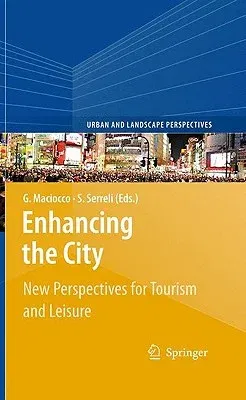Enhancing the City.: New Perspectives for Tourism and Leisure (2010)Hardcover - 2010, 26 October 2009

Qty
1
Turbo
Ships in 2 - 3 days
In Stock
Free Delivery
Cash on Delivery
15 Days
Free Returns
Secure Checkout

Part of Series
Urban and Landscape Perspectives
Print Length
369 pages
Language
English
Publisher
Springer
Date Published
26 Oct 2009
ISBN-10
9048124182
ISBN-13
9789048124183
Description
Product Details
Book Edition:
2010
Book Format:
Hardcover
Country of Origin:
NL
Date Published:
26 October 2009
Dimensions:
23.39 x
15.6 x
2.24 cm
ISBN-10:
9048124182
ISBN-13:
9789048124183
Language:
English
Location:
Dordrecht
Pages:
369
Publisher:
Weight:
712.14 gm